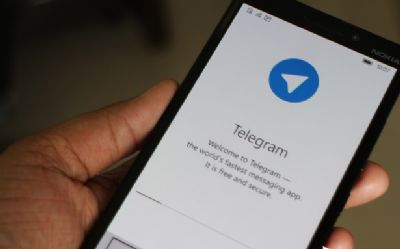Three 24-year-olds have been sentenced to 12 years in prison each in Iran for posting critical commentary about politics and religion on the popular Telegram messaging network.
"These guys were posting articles and cartoons on Facebook and Telegram that criticized the political and religious situation, and also shared material from others," an informed source told the Center for Human Rights in Iran (CHRI). "But most of the accusations against them are related to their posts on a Telegram channel where political and religious topics were discussed."
Alireza Tavakoli, Mohammad Mehdi Zamanzadeh and Mohammad Mohajer were arrested in Tehran during the summer of 2016 by Iran's Intelligence Ministry.
Tavakoli was arrested on August 2, Zamanzadeh on September 3 and Mohajer on September 10.
The internet and social media apps are heavily restricted and censored in Iran, with hardliners in the government viewing any form of internet freedom as a threat to the sanctity of the Islamic Republic.
They were held in Evin Prison's Ward 209, controlled by the Intelligence Ministry, where they were interrogated without access to legal council and then transferred to Ward 8, the source told CHRI.
They were tried at Branch 15 of the Revolutionary Court presided by Judge Abolqasem Salavati on April 10, 2017.
On April 21, the men were each handed 12-year prison sentences for allegedly "insulting the sacred" (five years), "assembly and collusion against national security" (five years) and "insulting the supreme leader" (two years) in posts on Telegram.
In December 2016, President Hassan Rouhani signed the Charter for Citizen's Rights, which states the government should "guarantee freedom of speech and expression" within the limits of the law.
According to Article 26: "Every citizen has a right to freedom of speech and expression. This right shall be exercised within the limits prescribed by law. Citizens have the right to freely seek, receive and publish views and information pertaining to various issues, using any means of communication. The government shall, according to the law, guarantee freedom of speech and expression, especially in the mass media, cyberspace, including in newspapers, magazines, books, cinemas, radio and television, social networks and the likes."
April 30, 2017
Three Young Iranian Men to Serve 12 Years in Prison For "Insulting" Social Media Posts
Date
April 30, 2017
Title
Three Young Iranian Men to Serve 12 Years in Prison For “Insulting” Social Media Posts,
Iran Human Rights
Original Source

